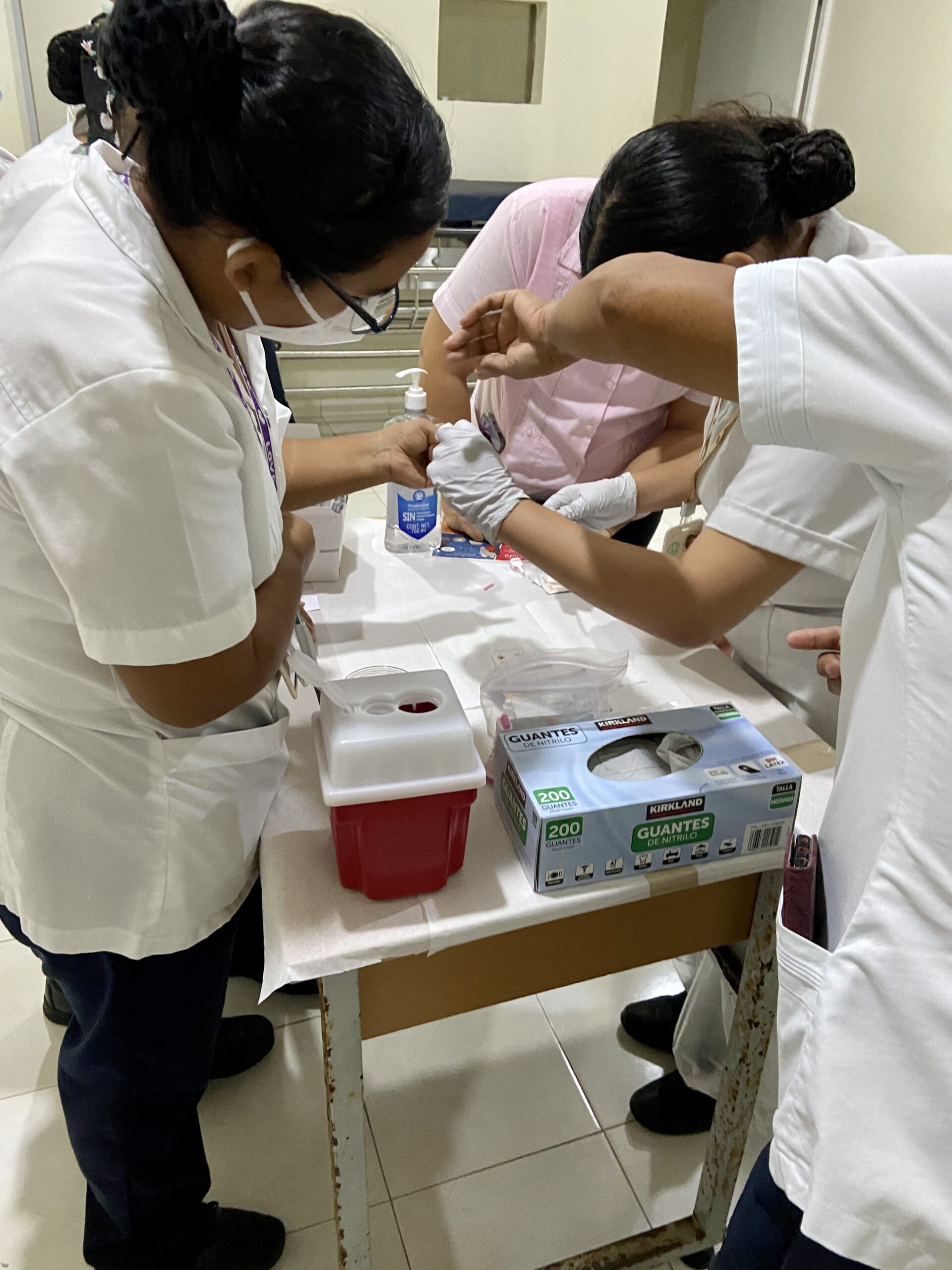
Medical Training in Merida?
This week I officially began my internship with Fundación Brazos Abiertos Internacionales, also known as BAI A.C! BAI is a nonprofit organization dedicated to educating, preventing, and empowering the people of Merida who live with HIV. Their work involves workshops and conversations with middle and high school classrooms about sexual health, HIV testing at local health fairs, and training for medical professionals.
I have done previous medical and health related internships and volunteer work in the United States since I was fifteen years old. Most of the time, interns and volunteers who do not have government-approved certifications or degrees cannot engage with patients medically. For example, in high school, I could only provide directions within the hospital and offer entertainment resources to patients and visitors. Once I started volunteering in college, I was old enough to partake in training and quizzes to receive certification to fill out official medical insurance applications and speak with patients about their healthcare. The pandemic, though, further complicated the interactions non-employees can have with patients.
In Mexico, things function differently. There are less regulations that prevent volunteers and interns from interacting with patients medically. Therefore, while I was attending orientations to work with BAI, they informed me that I would be trained to perform HIV tests on patients that reached out to BAI for guidance. At first, I was super excited because I felt like I reached the point in my career where I could first-handedly help people directly! Then, I became nervous. I started doubting myself because I have been taught that only certain people have the ‘authority’ and ‘skills’ to perform certain tasks because they have worked through many years of schooling. I realize now that this can lead to the intimidation of patients that are seeking medical help – a fear is created that one will be scolded or made to feel dumb by doctors. It is true that medical professionals in the US go through many years of schooling, but that does not mean that medical workers who have less schooling are any less important or helpful.
The directors at BAI have made my work feel valued. They acknowledge me as a student, as someone going through new experiences and changes, and as a person who wants to help. I don’t feel like I am handed work to fill a checkbox or that I am taking up space or time. I feel excited to go into the office every day! This environment is essential to provide approachable care. Patients feel welcomed and safe when they seek BAI because they first see non-doctors and aren’t immediately placed into a power relation.
However, things outside of the office don’t always work the same way. This month we hosted HIV testing training at a local, public health center, where we trained nurses, doctors and every medical aid in between. These clinics are very saturated, and the medical personnel feel pressured to see as many patients as they can, without necessarily establishing the relations we do at BAI. Attending this training opened my eyes to how their time and resources are limited – for the training 40+ of us were placed into a small X-ray room without chairs or desks. In that space we were expected to set up a presentation and demonstration in less than an hour. We strictly had an hour because the clinic does not have the funds to pay their employees more to stay overtime. Therefore, the attendees looked tired, distracted, and not engaged at all. Only 10 of them stayed to practice how to apply and read an HIV rapid test. It is not completely their fault though — their time is limited and they have many responsibilities. This, unfortunately, leads to lower-quality care for the lower-income communities that utilize this health center. It is a cycle that repeats itself and keeps certain communities lacking appropriate care. I hope to learn about and help programs and events that aim to provide more adequate and approachable care in my next months at BAI. I am aware that there are also fundraising events geared towards Americans and Canadians living in the region or interested in cooperating financially, so I will definitely sign up to volunteer at these events as well.
